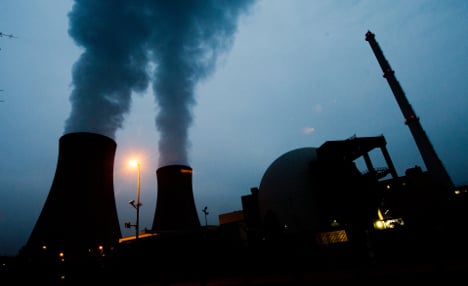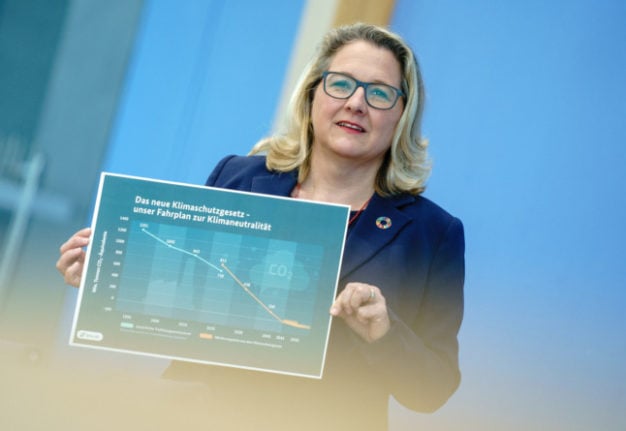On Tuesday E.ON announced the biggest loses recorded by a publicly-traded energy provider in the history of the German Republic.
The company said in a statement that "the persistently difficult situation on energy markets" and a drastic reorganisation pushed it deeply into the red in 2014.
It recorded a bottom-line loss of €3.16 billion for 2014, compared with a profit of €2.09 billion for 2013.
Christoph Podewils, Head of Communications at Agora Energiewende, a think tank which focuses on Germany's transition to renewable energy, told The Local that the reasons for E.ON's financial troubles are twofold.
“There is decreasing demand for energy throughout Europe because of the economic crisis. And there is also increased supply because renewable energy sources have come onto the market at close to zero cost,” said Podewils.
Prices on the power market have been going down since 2010, he says, meaning once profitable power stations now have to sell off electricity at marginal prices.
Minnows undercut whales
Adding to the big energy concerns woes is greater competition.
“Wehereas before there were 6 big energy companies competing for a market, today they are in competition with millions of small producers,” said Podewils, referring to small wind and solar projects that dot the German countryside.
The warning signs that difficult times lay ahead were there late in 2014, when the company announced that it would be splitting its operations into two companies, one which focused on renewable energy and one which took care of its traditional coal and gas concerns.
"Considering the continued difficult market environment in many countries, we're generally satisfied with our 2014 results, particularly since we achieved lasting cost reductions across our business and made a number of successful disposals," chief financial officer Klaus Schäfer said.
Schäfer blamed the losses on low oil prices, adverse currency rates and a decline in power prices.
Witschaftswoche reports that the company is expecting further losses in the current year.
The financial magazine writes that the news is barely better for one of Germany's other energy giants RWE which recorded a profit in 2014 only because it had undertaken costly write-offs in the previous financial year.
RWE boss Peter Terium warned that the situation this year was likely to be worse than in the previous year, since 35-40 percent of conventional power stations were no longer profitable.
Podewils told The Local that there is still a future for some traditional energy sources.
“The nuclear phase-out [the German government's decision to shut down all nuclear power sources by 2022] will influence demand.
"Also in the long run we will need highly flexible gas power plants to compensate for when there is a lack of wind or sun,” he said.
French energy company lays off German workers
In more bad news for those involved in Germany's energy industry, the French nuclear energy company Areva announced on Wednesday that it is seeking to cut around 1,500 job in Germany by the end of 2017.
At a meeting between management and employees on Tuesday, Areva's chief Philippe Knoche said the company planned to slash 1,500 full-time-equivalent jobs by the end of 2017 including 500 to be carried out this year, the spokesman said.
Wolfgang Niclas, representative for the IG Metall union, said earlier that 1,000 jobs were on the line in 2016 and 2017, confirming a report in the French business daily Les Echos.
Areva employs more than 5,000 people across eight sites in Germany, according to the group's website.
Last week the French nuclear group confirmed record net losses in 2014 of 4.8 billion euros ($5.3 billion) after it was forced to absorb costs linked to delays to its flagship next-generation reactor.
With AFP



 Please whitelist us to continue reading.
Please whitelist us to continue reading.
Member comments